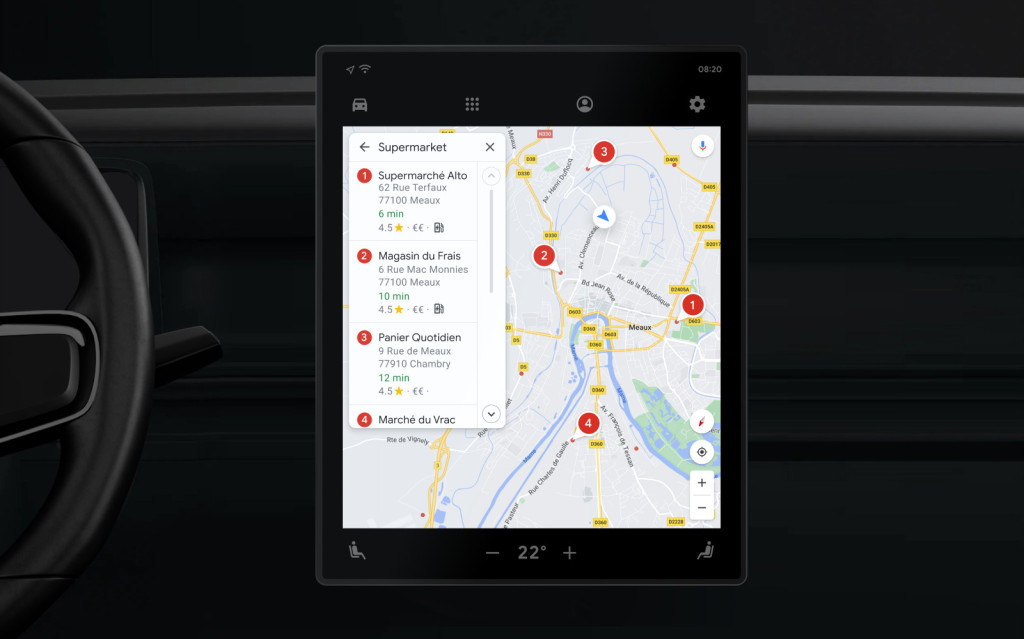EV drivers can now get more functionality out of Google Maps thanks to new features like power-level information for public chargers and route planning that incorporates charging stops.
As part of a recent update, Maps now distinguishes chargers with a power level of 150 kw or higher with a “very fast” filter, according to a Google blog post. For vehicles with Google built-in, which gives Google access to state-of-charge information, it will also suggest the best charging stop.
Google Maps EV charging station functionality
Brands currently offering Google built-in on at least some of their models include Polestar, Volvo, Chevrolet, GMC, Cadillac, Honda, Ford, and Renault. It uses the Google ecosystem of apps as the default for a vehicle’s infotainment system, allowing Maps to replace a generic navigation app, for example. This is deeper integration than Android Auto, which simply shows content from a phone on the car’s display screen.
In the U.S., specific EV models with Google built-in include the Cadillac Lyriq, GMC Hummer EV, Polestar 2, and Volvo XC40 Recharge and C40 Recharge. With this added functionality, drivers of these EVs should be routed to the fastest nearby charger, eliminating the need to sift through a list of chargers or consult multiple apps.

Google Maps EV charging station functionality
The update should be a big step in improving the user experience of Google Maps for EV drivers. Google added EV charging locations back in 2018 and said at the time that it would show via Maps what types of connectors were available, power levels, and pricing. But at the time, that information would not display on all products and platforms.
Now Google says it has also added charging information to point-of-interest search results. Searching supermarkets, for example, will now show which ones have charging on the premises. The company also discussed new ways for smartphone users to find those charging stations once onsite, including augmented reality overlays, plus “glanceable directions” that show the next turn and an updated arrival time on a phone’s lock screen. Google says that’s coming for both Android and iOS.
